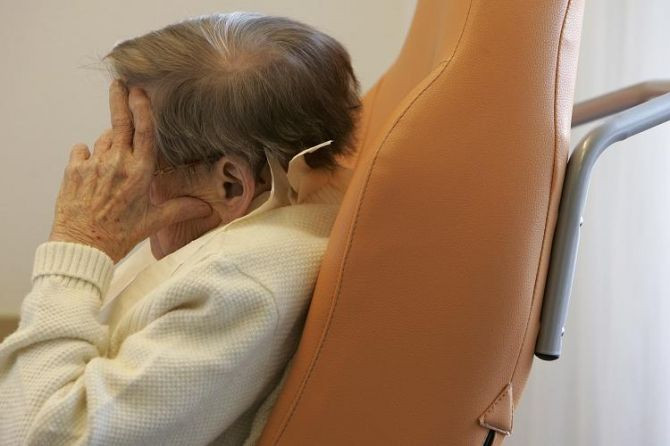Feeling Lonely Ups Risk for Dementia by 64 Percent

When people think of the risk factors for dementia, they likely think of old age, genes, and possibly junk food. However, new research suggests that another factor should be added to the list: loneliness.
The impacts of loneliness and social isolation - defined as living alone, not having a partner or spouse, and having few friends or social interaction - has not been heavily studied. A group of researchers from the Netherlands decided to study just that, since many populations in high-income countries are aging and divorce rates are fairly high.
The researchers tracked the well-being of 2,000 older men and women. None of them had any signs of dementia at the start of the study and all of them lived in their own homes. The participants were obtained through the Amsterdam Study of the Elderly (AMSTEL), which tracks enrolled individuals for depression, dementia, and death.
At the beginning of the study, which lasted for three years, 46 percent lived alone and were single or no longer married. About 75 percent of the adults said that they had no social support. Just under 20 percent of individuals reported feeling lonely.
Three years after the start of the study, the participants' mental health and well-being were assessed using a battery of tests. They were also tested for their physical ability, their ability to carry out everyday tasks, and were specifically asked if they felt lonely. They were then tested for dementia.
The single greatest risk factor, among those that the researchers tested, was loneliness. Men and women who were lonely were 2.5 times more likely to develop the disease - 13.4 percent of lonely adults developed dementia, while only 5.7 percent of people who did not describe themselves as lonely succumbed to the illness. When researchers controlled for the other factors, the lonely adults were still 64 percent more likely to be diagnosed with dementia.
Among people who lived alone, 9.3 percent developed dementia, compared with 5.6 percent who lived with others. People who were no longer married or had never been married were 70 to 80 percent more likely than their still-married peers to develop the condition. However, those who reported having social support had about double the risk of developing dementia, compared to people who did not have those networks.
The results are particularly troubling considering that most of the caretaking of adults with dementia falls to loved ones.
The study was published in the Journal of Neurology, Neurosurgery, and Psychiatry.



























